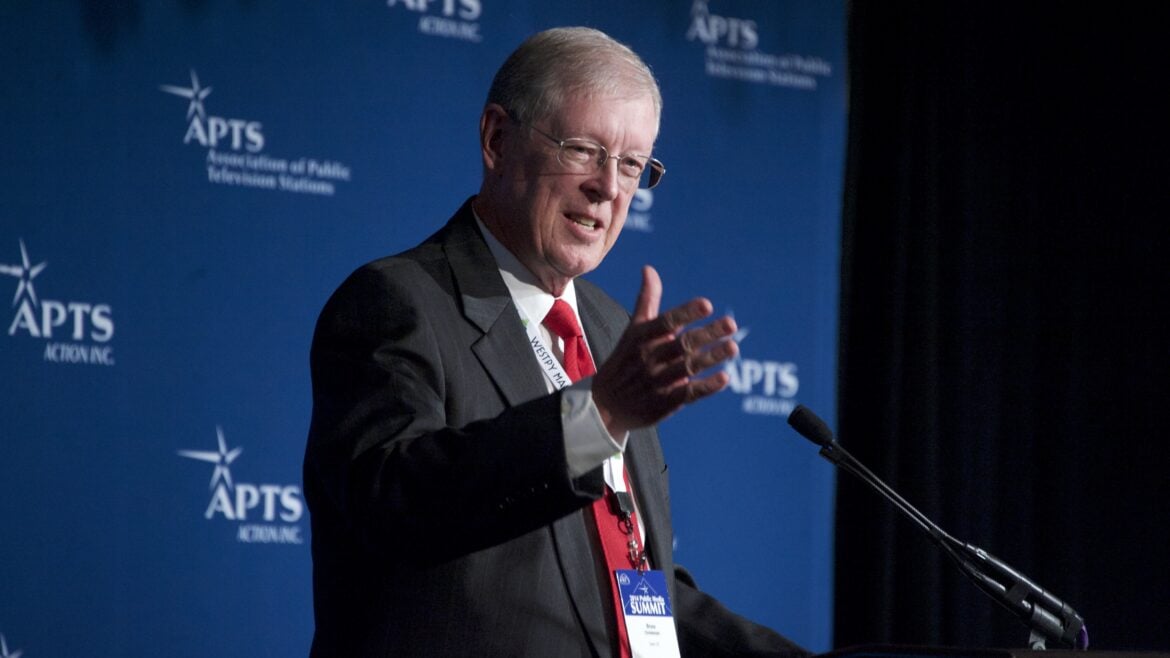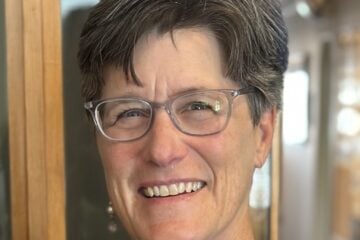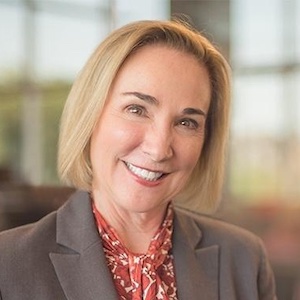Former PBS president Bruce Christensen dies at 79

Phil Humnicky
Bruce Christensen at the 2014 APTS Public Media Summit.
Bruce Christensen, who led PBS from the mid-1980s to the early ’90s amid attacks on public TV for airing controversial documentaries, died Friday at his home in Orem, Utah. He was 79.
Christensen fell several months ago and had been in and out of the hospital, according to his family.
PBS President Paula Kerger called Christensen “a giant of public television” in a statement Monday.
“For nearly a decade, Bruce led the entire PBS system with determination and grace, never wavering from our mission and ushering in a new era of growth,” Kerger said. “Many landmark series debuted during his time, including The Civil War and Eyes on the Prize, along with unique children’s programming. … Bruce changed PBS for the better and could always be counted on as a friend and wise counsel in a moment of need.”
Christensen succeeded Lawrence Grossman as PBS president in 1984. Throughout his tenure, colleagues praised him for defending PBS as it faced accusations that its programming had a liberal slant. After conservative critics argued for cutting funding for public broadcasting, Christensen defended the system in a speech at the National Press Club in July 1992.
“The answer to whether public broadcasting is a successful and a valuable public good is a resounding yes,” he said. “… The public good offered by this institution lies in its ability to treat the American people as citizens of a nation, rather than as consumers in a marketplace.”
Jennifer Lawson, whom Christensen hired in 1989 as PBS’ chief programmer, said in an interview that he was the perfect leader for the times. Coming into the job, he had experience lobbying on behalf of public media, had led a dual licensee, was on PBS’ board and had worked as a journalist.
“I was impressed with his leadership, his straightforwardness, his manner of dealing with and really listening to the member stations around the country,” Lawson said. “He was terrific to work with.”
David Brugger, former president of America’s Public Television Stations, said Christensen adeptly handled pressures from producers, politicians and large and small stations.
“Everyone really respected him,” Brugger said. “He was trustworthy, logical. It wasn’t that it didn’t get frustrating at times, but he learned to deal with it.”
‘A wise and generous counselor’
Christensen, a member of the Church of Jesus Christ of Latter-day Saints, was born in Ogden, Utah, on April 26, 1943. He grew up in Clearfield, less than 40 miles from Salt Lake City.
Christensen did not wear his church membership on his sleeve. But his faith informed how he approached life, according to an essay he wrote for the 2001 book Finding God at BYU.
Christensen earned a bachelor’s degree from the University of Utah. In 1969, he earned a master’s degree from Northwestern University’s Medill School of Journalism. He was later inducted into the school’s inaugural class for the Medill Hall of Achievement.
Christensen began his media career as a reporter for KSL in Salt Lake City, owned by the LDS Church’s Bonneville International media company. Arch Madsen, then president of Bonneville, met Christensen on a missionary trip to Brazil.
Christensen also worked for WGN News in Chicago as a sports writer and producer. He returned to KSL as a statehouse correspondent, then became director of the department of broadcast services for Brigham Young University in 1972. There he led the university’s TV and radio station. In 1979, he became a PBS board member and GM of sister stations PBS Utah and KUER.
Christensen was the second president of the National Association of Public Television Stations, now known as APTS, from 1982–1984. “Bruce’s pioneering work at both APTS and PBS contributed to a very strong and successful public television system, in ways too often overlooked with the passage of time,” said APTS CEO Patrick Butler in a statement Sunday. “Bruce was a wise and generous counselor and advisor to me and to others fortunate enough to succeed him at APTS.”
Challenges afflicted Christensen’s tenure at PBS from the very start. In October 1984, about six months after he started his presidency, a late-night fire hit PBS’ basement office inside the U.S. Postal Service headquarters in Washington D.C. A report in the Washington Post at the time said the fire jeopardized tapes and electronic gear, but workers were able to rescue 48 hours of programming so the broadcast schedule could continue. The fire paved the way for PBS to relocate to Alexandria, Va.
While running PBS, Christensen was “an enthusiastic early supporter” of what became the Utah Education Network, founded in 1989, according to a statement from COO Laura Hunter. Christensen sat on the steering committee for years, Hunter said, and his “wise counsel and enthusiasm for serving people through media were valuable and helped us grow to the organization we are today.”
Navigating concerns about PBS’ programming during the “culture wars” of the ’90s took much of Christensen’s time. Critics assailed films such as Days of Rage: The Young Palestinians, which examined Palestinian views of Israeli occupation, and Tongues Untied, a work about gay Black men that included profanity and men kissing. Several major public TV stations backed out of airing the film.
Lawson, who was PBS’ top programmer during many of these controversies, said Christensen was the kind of executive who told colleagues how much their support meant to him and how crucial their work was, especially during a crisis. In 1992, a few months before he left PBS, he wrote a letter to Lawson telling her how proud he was of her work.
“Dear Jennifer, your third year at PBS has been full of unanticipated adventures, not all of them welcome by either of us. Nevertheless it has been a rewarding, productive and successful year,” he wrote. “I want my actions as well my words to convey my unqualified support for you in the crucial role you play for all of public television. You carry an enormous burden for all of us with you with grace and aplomb.”
A convert to golf
When Christensen announced his resignation from PBS, he said, “I’ve ridden this pony a long time … and I’ve decided it’s time to get off and let somebody else ride,” according to the Washington Post. He said he was proudest of PBS’ work in education.
“He kept public television together in some very difficult times. He’s a man of great integrity, and it showed in the way he ran PBS,” Lawrence Grossman told the Post. “As some in Congress attacked the funding and complained about obscenity and ‘liberals,’ Bruce always took the high road. He was a good leader, he kept the system together.”
Neil Mahrer, a former COO at PBS, said Christensen was the consummate professional and was a “fair, honest and nice human being.”
From 1993–2005, Christensen served as dean of the College of Fine Arts and Communications at Brigham Young University. He later became SVP of Bonneville International before retiring in 2009. During retirement, he briefly worked as interim dean for Utah Valley University’s School of the Arts.
Christensen is survived by his wife, Barbara, whom he married in 1965, as well as his children and grandchildren.
Christensen’s family and former colleagues said he enjoyed watching baseball and loved biking, hiking, target shooting, tennis, racquetball and, surprisingly, golf. Mahrer, who remained good friends with Christensen throughout life, said the former PBS president hated golf for years and couldn’t understand why anyone likes it. That changed when he returned to Utah to work for BYU, where he seemed to become obsessed with the sport overnight.
Christensen’s enjoyment of golf and other hobbies was a representation of who he was in life, according to people who knew him. Family members said he was the kind of person who would become interested in something and seek to know everything he could about it as quickly as possible, making him a lifelong learner until the end.








He was also the greatest neighbor and friend. Generous, kind, and so helpful to one in need. He was truly a follower of The Savior in word and deed.
A great friend.